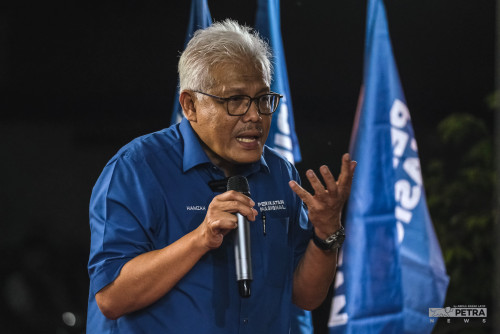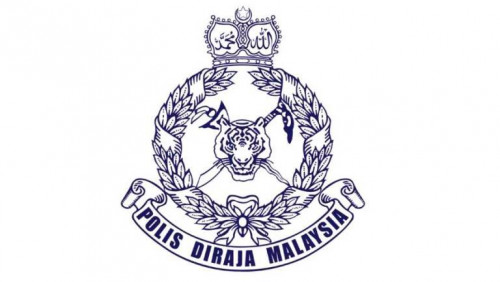ALTHOUGH governance and power are important for Pakatan Harapan and the unity government to make substantial reforms and progress for the country, adhering to the principles of its struggle to better the people’s lives, living up to public expectations, and carrying out effective reforms according to a well-calculated timeline would give reassurance that PH will survive longer.
History reminds us that any political alliance with conflicting ideological differences costs dearly, and the PH executives at all levels must take advantage of the golden opportunity of being in the government to get valuable governing experience and skills, and fulfil their promises with an unwavering determination.
Apart from Selangor, Negri Sembilan, and Penang, PH has little experience in governing Putrajaya and the other states.
During the 22-month ruling period from 2018 to 2020, Bersatu – which has a contrasting ideology and agenda from the PH component parties – monopolised the key positions of major departments and policy making. As a matter of fact, the then so-called “PH prime minister” Tun Dr Mahathir Mohamad not only had no intention of reforming the economy and institution; on the contrary, he took PH for a free ride.
Some “PH” government decisions were purported reversals of PH’s original manifesto to destabilise PH’s own bases. This cost PH a great deal in terms of credibility and public confidence, resulting in it falling short of securing a simple parliamentary majority and relying on other alliances to form a unity government in the 15th general election.
One has to admit that other unity government member alliances, including Barisan Nasional, GPS, and GRS have an advantage over PH in terms of governance and administrative experience. Therefore, PH should acknowledge the strengths of others to compliment its own weaknesses, while maintaining cooperative working relationships and cherishing healthy competition with other partners to survive as the fittest in the political wilderness.
There are not-so-functional democracies in history that can serve as a deterrent to what direction Malaysian democracy should head for.
The dismal state of Japan’s elected one-party “democracy” is one of the best examples for Malaysia to look into.
After forming a coalition government with the Liberal Democratic Party in the 1990s, Japan’s Social Democratic Party has been in a slump, and currently only manages to retain one seat each in both the House of Representatives and the Senate. On the other hand, Japan’s Democratic Party formed a coalition government with the Social Democratic Party in the early 2000’s and was forced to disband after only three years in power.
Japan has virtually become an elected one-party system, and its parliamentary democracy has actually been dysfunctional. Its government bureaucracy is firmly controlled by right-wing conservatism, and any new progressive regime is often dragged down by its bureaucrats who are largely trained in conserving its old regime than adapting to any new regime changes according to contemporary electoral wishes.
Japan is by and large a mono-ethnic society, and its one-party system and bureaucratic dominance over the government could never be an exemplifying inspiration for a plural and diverse society like Malaysia.
Similarly, one cannot simply overlook Mahathirism’s overwhelming influence over the Malaysian bureaucratic system. When Mahathir first became the education minister in 1980, he meticulously planned to abolish civic education and cold-storaged Rukun Negara in the school syllabus. He sophisticatedly set up Biro Tata Negara to instil single-race supremacy among civil servants, pretty much in opposition to the social contract in forming the nation at the time of independence.
His conservatism basically copied the highly politicised and conservative Japanese bureaucratic system, with a certain indoctrinated ideology. The end result of copying a rigid, uniform bureaucratic system from a mono-ethnic society into Malaysia’s plural and diverse society is not only completely out of context, but it also goes against the nation’s founding social contract that recognises Malaysia as a Malay-Muslim majority, yet multicultural country.
The refusal to admit the reality of having both a Malay-Muslim majority and multicultural society has been proven to be a grave stumbling block for Malaysia to make it to the league of developed nations.
Even though the premature demise of the PH government in 2020 was partly due to poor coordination between PH and the enormously powerful bureaucratic system, chiefly indoctrinated by Mahathirism, PH then showed the similar traits of the formerly disbanded Democratic Party of Japan, which had too many inexperienced political newbies, ignoring the necessity of combining the senior, middle, and young generations’ expertise and vibrance.
More importantly, it lacked the necessary sophisticated political strategy and skillful administrative experience. It was hard for the more experienced and senior civil servants to be convinced by the inexperienced PH executives and administrators, the latter being far less experienced in almost every way from their life experience to professional qualifications, compared with the largely sophisticated and well-trained Malaysian bureaucrats.
Like Japan’s Social Democratic party and Democratic Party, there was a dire lack of mature coordination and cooperation between top to lower-level civil servants and PH leaders, leading to the unsurprising early demise of the PH government.
Therefore, PH ministers’ performance and success within the unity government itself will still rely on well-coordinated and mature cooperation with civil servants of all levels. In the current unity government led by Anwar, PH needs a strong and steady team of reformists across all parties, political leaders of all generations, and civil servants at all levels. They need to patiently convince the enormously powerful bureaucrats with a broader mind to accept the dire need for institutional reforms, taking Malaysia to a higher level of national development.
Some political analysts observe that except for Anwar, who was the deputy prime minister holding high-level ministerial posts more than 20 years ago, PH ministers and state executives have had very short stints as government administrators, or no experience at all as first-time wakils rakyat, compared with their Perikatan Nasional and BN counterparts. They point out that the six Umno ministers have considerably much more required administrative experience, being former ministers, deputy ministers, and state chief ministers familiar with the bureaucracy’s deeply indoctrinated culture and modus operandi.
On the other hand, it is perceived to be an immediate threat to its survival that most PH ministers have only served for 22 months under the prime ministership of Dr Mahathir. And most PH state executives are newbies, facing the same predicament faced by Japan’s Social Democratic Party and Democratic Party when they were in the government. They have not yet fully grasped the modus operandi of the highly indoctrinated bureaucratic system, whose cooperation would determine whether not only PH. but also the unity government as a whole, will successfully implement their reformist policies.
If the PH executives lack the necessary administrative experience, and their aloofness makes them unable to gauge the ground sentiments and satisfy the people’s needs, the unity government could be easily subverted and toppled. There are also signs that the leaders in PH are too hasty to replace the upcoming middle echelon of leaders with young wakils rakyat who have no leadership and administrative experience.
This has made PH’s position as precarious as Japan’s Social Democratic Party and Democratic Party formerly were. Whether PH can continue to be in power and carry out systemic reforms depends on its own commitment and efficiency to cultivating loyal and capable leaders who are committed to systemic reforms and becoming effective executors. The success of the unity government would also eventually help sustain Malaysia’s multi-party and plural democratic system.
It is a real and painful reminder for all of us to take note of how in 2009, Japan’s Democratic Party alone swept 308 of the 480 seats in Japan’s lower house with an unexpected near two-thirds majority in Parliament. However, it collapsed after only three years in power. What are the major reasons for its government’s collapse and eventual dissolution?
In 2009, the Democratic Party successfully defeated many veteran politicians of the Liberal Democratic Party (LDP) by fielding young females nicknamed as “beautiful assassins” and other young candidates with no political and administrative experience. They won by enormously appealing to young voters who were sick of the ageing and corrupt LDP’s image.
It is not wrong to be young and beautiful, but it is unworkable and risky for a government to be run by elected wakils rakyat with little or no experience in politics and who are ignorant of how a government runs. Nonetheless, the challenges faced by PH now are quite similar to those by Japan’s Democratic Party government, which was ironically subverted by the same young and inexperienced lieutenants and appealing “beauty assassins” who had helped put them in power in the first place.
On the other hand, Japan’s Democratic Party also lacked a system of sophisticated and effective strategies to carry out reforms stepwise, and was rather hasty in its implementation of reforms. Differences in ideology, intense power struggles among its top party leaders, and the indiscipline of its junior lieutenants led to its government’s inevitable premature demise and eventual dissolution.
Japan’s Democratic Party serves as a lesson that is too good to be ignored for the component parties within PH. The PH component parties have to build up their youths’ strengths and nurture a new generation of leaders gradually, which is expected to take at least another 10 to 20 years for them to gain the experiences demanded. Basically, if PH wants to play an effective leadership role within the unity government, it has to combine the administrative experience, talents, courage, and determination to reform the country’s institutions, professionalism, and patience. A combination of senior, middle-aged and younger generations is needed to form an efficient lineup in creating a more mature government.
In other words, PH has to maintain close cooperation with Umno, BN, GPS, and GRS in the unity government. It also has to improve its own political rank-and-file organisation, information dissemination mechanism, and systemic training of its executives and lawmakers at all levels.
Otherwise, if the unity government fails to achieve a convincing degree of reforms, PH’s credibility would be at stake too for the failure of the unity government to advance the country and better the people’s livelihoods. If the unity government fails, PH may be reduced to the same fate as Japan’s Democratic Party and Social Democratic Party, with almost zero-sum political influence.
In politics, everything is possible depending on one’s will and efforts to achieve real changes. “Never ever say never”. If PH is determined to revive and maintain its credibility as a major force of reform, some leaders must frankly admit their strategic mistakes in the previous 22-month government. This will help reposition PH with a new discourse and re-establish its credibility. Only then can the morale of the grassroots and public enthusiasm be re-galvanised for substantial reforms.
Otherwise, any reluctance on the part of PH, BN, and the unity government would provide opportunities for PN to portray itself as a pseudo-reformist and rip PH’s political bases.
The unity government’s alliances, including BN, PH, GPS, and GRS, have a fair share of leaders involved in corruption charges as well. But on the part of PH, it has adopted a firm stance to avoid its leaders being implicated in criminal and corruption charges, serving as the unity government’s executives. It has prevented any PH leaders from using their political positions as bargaining chips to coerce both law enforcement and the judiciary into letting themselves off their own corruption charges.
Therefore, both the unity government and the opposition leaders must reach a consensus and pledge the same commitment to specifically redress corruption issues. This would ensure that Malaysia would envision Malaysia as a future first-world democracy and economy, with competent coalitions sharing power in rotation and maintaining mutual checks-and-balances within its constitutional framework
In conclusion, PH should meticulously leverage its advantages in power, and forge a clear direction for reforms that would save Malaysia from a political and economic stagnation. If PH is capable of elevating Malaysia to a first-world political and economic system, it will have to inspire its own component parties to become world-class political forces.
More importantly, PH leaders at all levels must walk the talk to portray a clean, confident, and effective political leadership, which is the key strategy for PH defending Putrajaya in the future. – The Vibes, June 26, 2023
Dr Boo Cheng Hau is the former Johor DAP chairman and also wrote the first part of "Making a world-class PH and unity government".



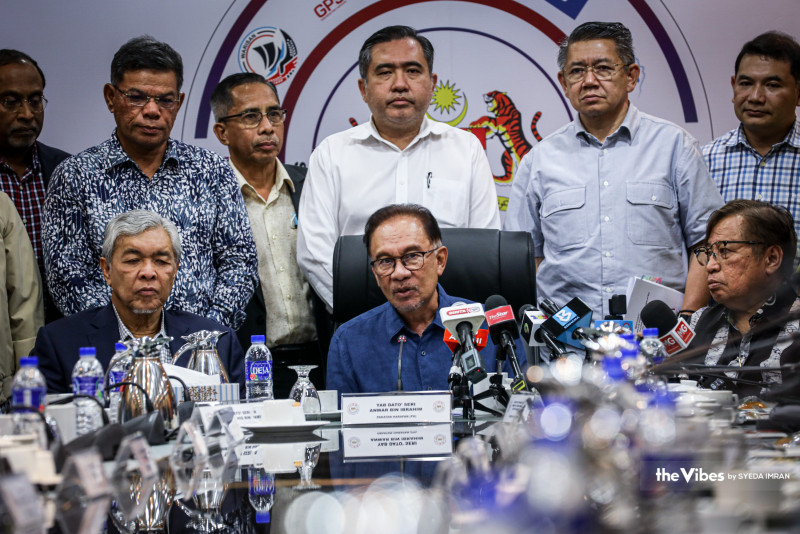
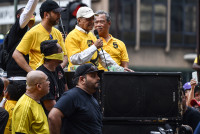


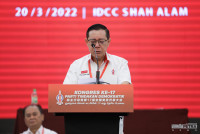


_and_lord_mayor_rajendran_posing_in_a_mock_up_lrt-Ian_pic.jpeg)


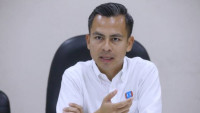


.jpeg)


